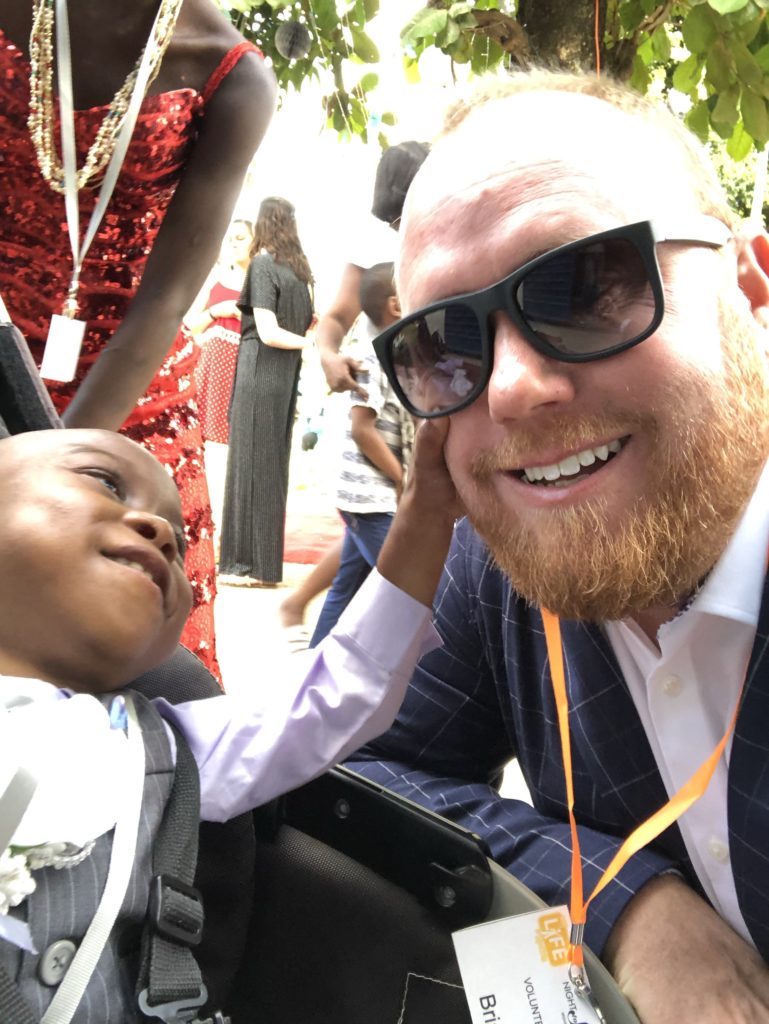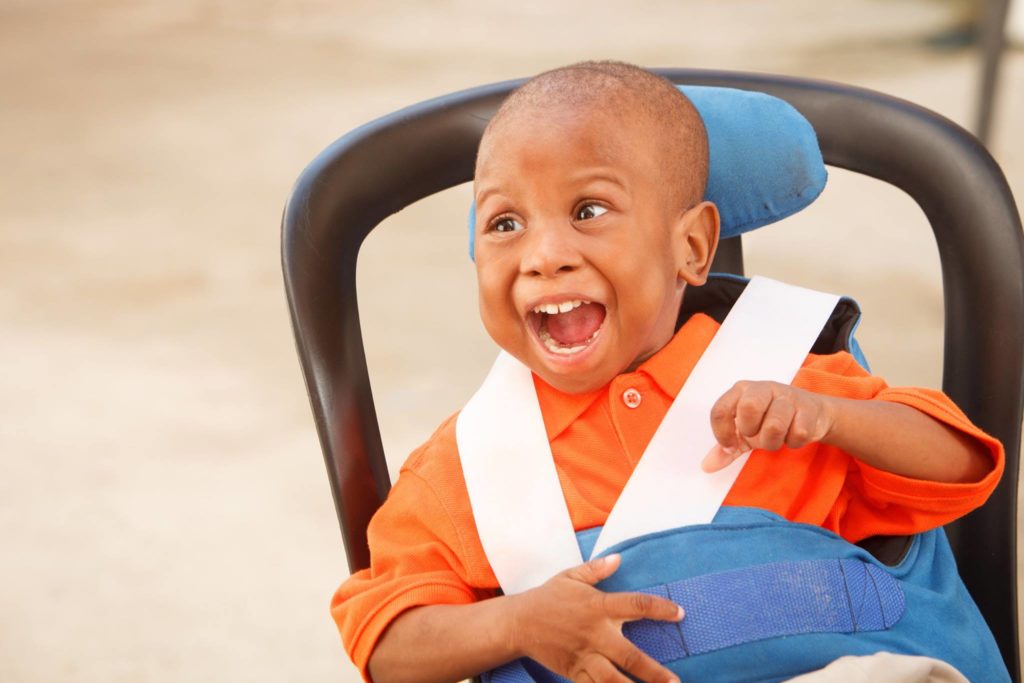A little under 700 miles from Miami, nestled in the islands in the Caribbean Sea, is Haiti, the poorest country in the Western Hemisphere. One small village there is Neply, a village of 2,700 people.
One of those people was Frantzky, a young boy who faced more difficulties in his nearly ten years of life than most will face in a lifetime. Tragically, Frantzky’s life was cut short due to what, in a first world country, would be entirely preventable causes: a virus and dehydration.

Frantzky died four and a half months before he would have turned ten years old. Yet, in less than a decade on this Earth, this young Haitian boy overcame so much and inspired so many.
“He’s a hero because so many children’s lives will be positively impacted because of his memory and his life and that infectious smile,” Brian O’Neil, executive director of Third Lens Ministries, said of Frantzky.
Haiti’s culture still has deep ties to voodoo ideals, including the notions that those with disabilities are cursed or possessed. Due to these ingrained beliefs, people with disabilities are treated as less than, often being seen as not worthy of love, care, help, or in drastic cases, even life.
Frantzky was born with club feet, and at three years old, he was abandoned. A missionary from myLIFEspeaks, a nonprofit ministry based in Neply that is largely focused on helping children, especially those with special needs, found Frantzky. myLIFEspeaks tried to provide Frantzky’s mom with the help and guidance she needed to raise the boy. When it became clear he would not be taken care of under her watch, the ministry went through child services to have him placed in their care.
As he recovered from severe neglect, including extreme malnourishment, it became evident that Frantzky had other disabilities and developmental delays. Frantzky didn’t speak, yet he had such a joy that he conveyed to others through a bright smile.
“There was a little boy that was brought in with a walking stroller, and he just had this infectious smile on his face, and it was Frantzky,” O’Neil said of the first time he met Frantzky. “I went over and started talking to him. I would put my finger out, and he got a firm grip on my finger. He looked at me with that smile and that was how our friendship began. I thought, wow, this kid, has such physical challenges and I didn’t know the whole story, but that’s pure, God-given joy right there.”
Access to healthcare was a continuous battle for Frantzky and those who cared for him. He suffered from a strain of malaria for which Haitian doctors did not have the resources to treat. After recovering from malaria with the help of myLIFEspeaks and miraculous medicine that was flown in from the United States, Frantzky was finally able to be placed with a new family.
For the next several years, he flourished with his new mom, grandmother and siblings. He attended school at the Life Academy, a school run by myLIFEspeaks, and connected with many people.
“Everyone who met Frantzky was affected by his infectious personality,” O’Neil said. “Although he never spoke, Frantzky’s impact will far outlast any words. Later, I found out on social media that some of the ministry staff did these posts every Friday called ‘Frantzky Fridays’ that would highlight his huge smile and that huge personality. I think those posts went viral because that joyous smile resonates with all of us.”

Sadly this past April, he got sick again. He had been vomiting for several days, and his family decided it was time to take him to a hospital. First, he was taken to a local facility that did not have the resources to help him. Then he was transported to a larger hospital. In this hospital, he did not receive proper care, in large part due to prejudice against him due to his disabilities and family’s financial situation, and he continued to worsen.
Frantzky was transported to a third hospital in the Haitian capital of Port au Prince, but it was too late. He passed away on April 19, 2019. The only bright spot in the tragic loss of this child was that he was surrounded by people who loved him. Frantzky did not die before getting to know the love of a family, something that when he was first found and on the edge of death was not guaranteed.
Frantzky’s story inspired so many and his legacy will live on in Haiti and through all those he met. The need for help for those with disabilities in Haiti, the struggles of a poor country, the lack of medical resources, and the strength of a young boy who faced so much judgment and pain yet continued to be a face of joy for those around him.
“I think Frantzky is is an example of a childlike joy and an infectious personality and an innocence that in this crazy world we live in, you just don’t see a whole lot of,” O’Neil said. “But when you see it, you’re drawn to it. I think practically, Frantzky is an example of the depravity that some people in this world live with that they shouldn’t have to. There’s no reason why a child like Frantzky should die of dehydration because he got a stomach bug. There’s no reason why when treatment was sought he was denied basic medical care.”
This past October at the annual charity event for myLIFEspeaks, a painting of Frantzky auctioned off for $25,000. Two more bidders offered to pay the same price for two more paintings to be commissioned, so in total that image of Frantzky and his bright smile raised $75,000 for myLifespeaks to help other kids like him and fund the programs that helped him live as long and as happy as he did.
The hope is that by sharing Frantzky’s story, it can raise awareness of the health crisis in Haiti. Frantzky’s death may have been preventable, but it does not have to be in vain. Frantzky’s legacy can be a part of providing help to others in his country, spreading his story can help other young Haitian children like Frantzky live past nine years old and be able to accomplish things that Frantzky never got to.
“Frantzky’s legacy is going to be lived out when we build a hospital down there,” O’Neil said. “It will be a teaching hospital where generations of Haitian medical professionals are trained and equipped. Where children receive the care that they deserve. And where special needs children are not treated differently than our own children.”

